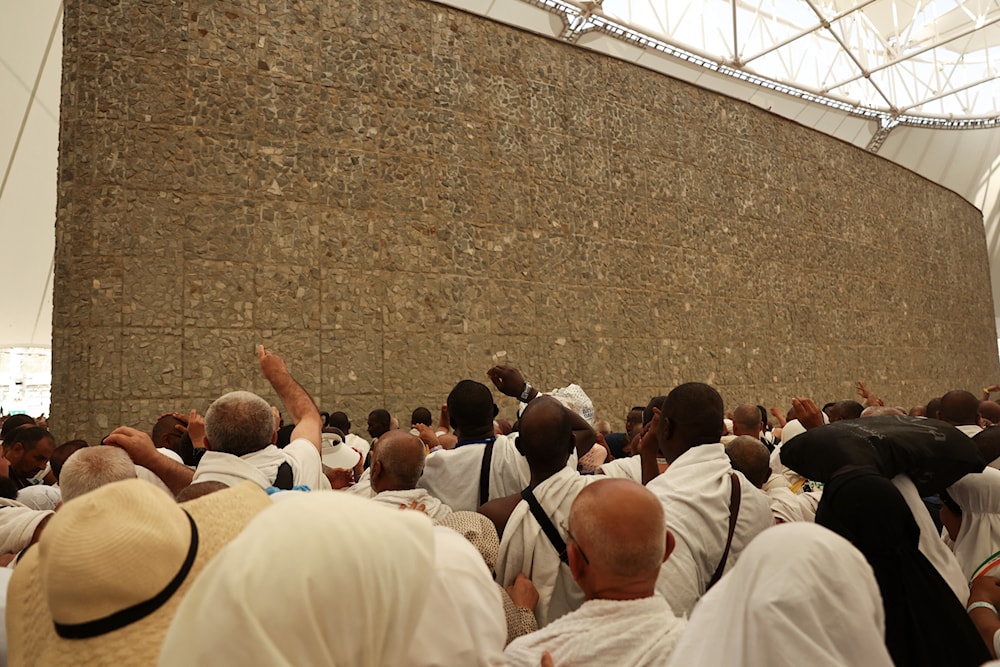Muslims celebrate Eid al-Adha, as pilgrims 'stone the devil'
The ritual commemorates Abraham's act of stoning three locations where it is believed Satan attempted to dissuade him from obeying God's command to sacrifice his son.
-

Muslim pilgrims perform the symbolic "stoning of the devil" ritual as part of the Hajj in Mina, near Saudi Arabia's holy city of Mecca, on June 16, 2024. (AFP)
Pilgrims partake on Sunday in the final major ritual of the Hajj, known as the "stoning of the devil," in western Saudi Arabia as Muslims worldwide celebrate the Eid al-Adha holiday.
Starting at dawn, the 1.8 million Muslims on this year's pilgrimage throw seven stones at each of the three concrete walls in Mina, near Mecca, the holiest city in Islam.
The ritual commemorates Abraham's act of stoning three locations where it is believed Satan attempted to dissuade him from obeying God's command to sacrifice his son.
The stoning ritual has seen several stampedes over the years, the deadliest occurring in 2015, resulting in up to 2,300 deaths. The site has since been redesigned to better manage the large crowds.
On Saturday night, pilgrims gathered stones and spent the night in Muzdalifah, situated between Mina and Arafat, where they had spent the day praying in temperatures reaching 46 degrees Celsius (114.8 degrees Fahrenheit).
Muslim pilgrims began their journey at dawn on Saturday to observe the most significant day of #Hajj by praying on Mount #Arafat.
— Al Mayadeen English (@MayadeenEnglish) June 15, 2024
They were seen walking through the streets of Arafat and ascending the Mount of Arafat at sunrise, where Prophet Mohammad is believed to have… pic.twitter.com/fgaVgs3kqJ
Performing the Hajj – one of Islam's five pillars – is an obligation for all Muslims who have the means to do so. This year's pilgrimage, with 1.8 million participants, mirrors last year's numbers. Saudi authorities reported on Saturday that 1.6 million pilgrims came from abroad.
This year's Hajj takes place amid the ongoing Israeli war on the Gaza Strip, where Palestinians are forcibly prevented from leaving to perform the pilgrimage.
The stoning ritual comes in parallel with Eid al-Adha, a festival honoring Abraham's willingness to sacrifice his son before God provided a sheep instead. Traditionally, worshippers slaughter a sheep and distribute part of the meat to those in need.
Read more: Renunciation of 'Israel', US must extend beyond Hajj: Sayyed Khamenei

 2 Min Read
2 Min Read








